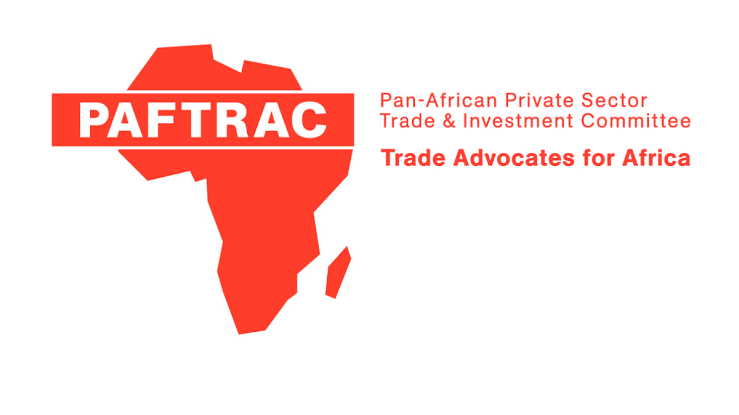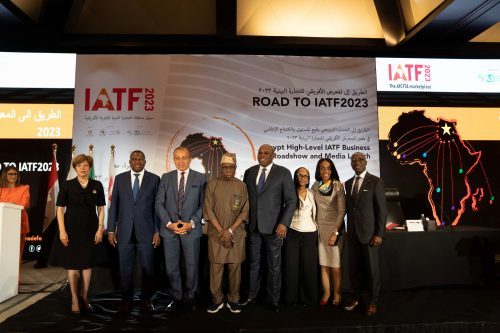Carl Oshodi is the Group CEO of Africa Industrialization Group Inc. He is also the pioneer executive chairperson and co-founder of the African Youth Union Commission (AYUC) – an independent youth cluster hugely involved in empowering young people in Africa with entrepreneurial and industrial skills and leadership capacities. He is the current Vice President of the Pan African Chambers of Commerce (PACC). Oshodi played pivotal roles at the formative stage of The African Continental Free Trade Area (AfCFTA) and even till now.
In this interview with MSME Africa, Oshodi, among other things, shared his opinions on how MSMEs can take advantage of and be the major drivers for the implantation of AfCFTA.
Can we meet you?
My name is Carl Oshodi Isibor from Edo state and I have been involved in issues that have to do with African regional economic development, industrialization, innovation, tech solutions and growth in particular. My first experience was in the private sector, along the way in 2010, I discovered that the private sectors is not getting the attention it deserves. Deliberately, I focused in trying to penetrate the non-state sector which has NGOs and Civil societies as huge platforms to discuss relevant issues of policies and other developments with Government which means that Governments work more with the Civil societies and other non-state actors.
Kindly share with us what your journey has been in the areas of youth and entrepreneurship in Africa
In 2011, I deliberately joined the National Youth Council of Nigeria to see how we can focus on youth empowerment as a tool to scale up development because I believe right from time that youths are key drivers and are major pillars of economic and social transformation in any country.
In Africa, due to demography, I joined the Youth Council until 2016 when I became very interested in activities around ECOWAS, East Africa economic community, North Africa economic community, North Africa economic community, Central Africa economic community and Africa Union. I worked with some other groups to form the Africa Union Youth Group.
I also got involved in some other groups and initiatives geared toward every developing a youth framework for capacity building, inclusion in governance, participation in politics and SME skilling. All of these led to a much bigger aspiration where I became very involved in consulting with the department of Trade and Industry as well as Infrastructure and Energy. Due to my expertise in trade and industry, quality infrastructure, I was welcomed to the department of Trade and Industry.
What role did you play in the formation and implementation of AfCFTA?
I joined at the time we were designing the framework and developing the earlier documentations of the African Continental Free Trade Area (AfCFTA). 22 African Union members were present in Mauritius in 2018 for the first meeting of AfCFTA where they accepted and signed the document.
To form a quorum, there was a reconvening of more members of the African Union in Rwanda in August 2018 where 40 countries were in attendance. In 2019, there was more traction; 54 countries (Nigeria being the 54th).
In July 2019, I was opportune to declare the Civil Society forum and the private sector forum opened, this was due to recommendations based on the key role I have played in the process. After then there was a follow-up to encourage other countries to ratify these agreements and working out a way to document the instruments to the African Union being the grand coordinator of the AfCFTA. All these were part of the contributions I have made.
In 2019, we flagged off an Industry sector to help coordinate the industrialization of the continent and also help bridge the gap between the private sector and the public sector. It was also part of the objectives to bring in the players in the diaspora to help accelerate growth while also helping MSMEs to benefit from the industrialization of commerce, trade and all the good things of socioeconomic transformation.
I became the co-founder of African Industrialization Group Incorporated which is a private organisation in Africa with global perspective. I am also the Vice President of the board of the Pan African Chambers of commerce.
Is there a specific portfolio you handle with regards to AfCFTA after being a founding member that drafted the document?
I did more of supporting the project from the Private sector. I keyed into the committees on matters that involved propagation, developing frameworks and others.
What would be the impact of AfCFTA on the African business landscape?
AfCFTA will create a seamless ability for any business person to sell products or services beyond home nation to any country in Africa. This is possible provided the business person is registered with CAC, Exporters Promotion Council of Nigeria the business owner/promoter has a valid International passport or ECOWAS passport.
AfCFTA has also been able to remove the barrier of import and export tariff which has discouraged many business persons from exploring the African market. There’s a complete elimination for custom duties by the AfCFTA within countries in Africa.
AfCFTA is currently doing grassroots education for business owners on the ideas and policies of the body.
One of the projects AfCFTA is working on currently is the collection of data to ascertain the numbers of MSMEs in Africa. In Nigeria, AfCFTA is working with SMEDAN to have access to data of numbers of SMEs in order to encourage them to take advantage of stimulus packages in production.
There were plans to adopt a uniform currency for regional trade, but this is not in place as we speak. Will it affect AfCTFA’s implementation in any way?
Currency harmonisation is currently a debate, however, an agency has been mandated by the head of states and African union commission to develop methods, strategy and technology to resolve current issues and come up with an harmonised currency.
Eco is the proposed currency of the Western African nation. Afrexim has created a currency harmonisation platform to address the issue of currency swap, an online trading platform for Africans with currency harmonisation without conversion. Paystack has been able to harmonise currency too but it is limited to ecommerce. We are however working on creating one for every business person.
AfCFTA now has an online trading platform where anyone can trade beyond African sources; product from different sectors will be on the platform
What are the other obstacles for AfCFTA ?
Competitiveness is lacking in African markets. MSMEs should compete well in order to fight rules of origin. We see business people in getting involved in malpractices of all sorts; they can get a product from China, repackage it and tag it made in Nigeria. This will definitely defeat the purpose for setting up AfCFTA.
Another challenge the inability to give more enough rooms for participation to MSMEs who are no big on technology, ecommerce, social media and the rest. These MSMEs should be the key drivers of implementation of AfCFTA because of their large numbers and their huge contributions to the GDP, employment and stabilization of the economies of the AfCFTA member states.
Infrastructure is another challenge for AfCFTA, in nations where infrastructure (transport networks like road, airways, sea ways) is in a porous state, it would be a barrier for implementation of AfCFTA.
Security is another issue that is hampering the movement of persons within Africa; free movement of people will be hindered by insecurity.
What are the specific roles technology will play in making AfCFTA become a success?
Technology can help to support the growth of “Buy Africa, made in Africa” initiative. It will help in expanding ecommerce system which will include payment settlement mechanism. Technology will lead to innovation e.g virtual reality. Technology can expand the medium of meetings with the local SMEs
What will be your parting shots for entrepreneurs?
Have your idea and create a local product around it. Be a step ahead each day by developing solutions that can help to increase your productivity, profit and compete at higher level. Businesses should also take advantage of social media to amplify their businesses.









